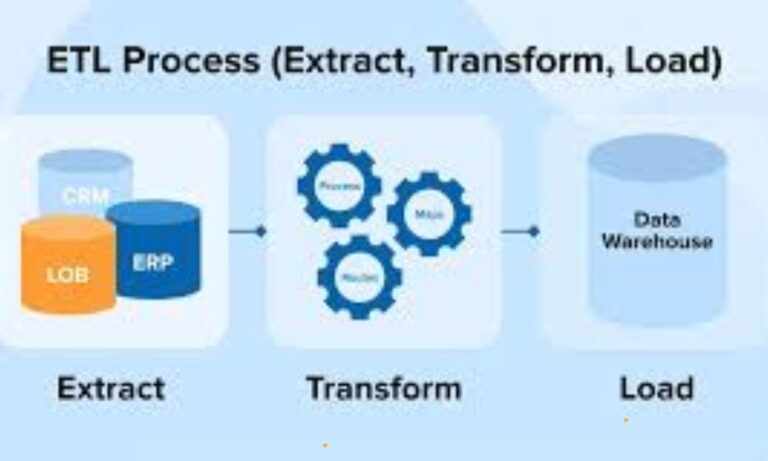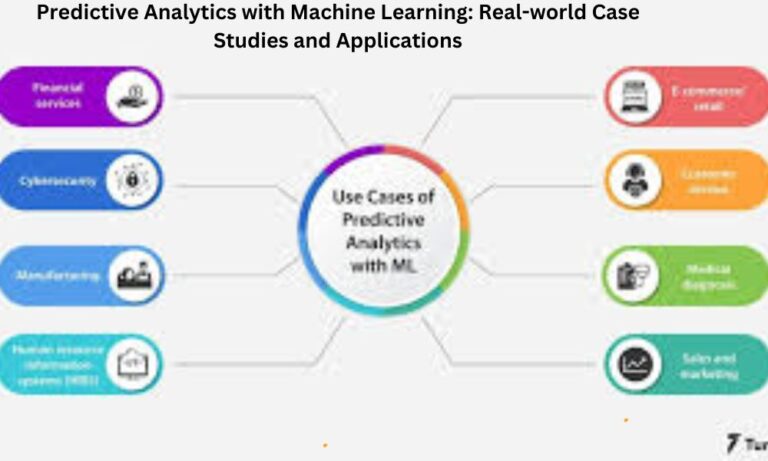Machine Learning in Healthcare: Transforming Patient Care
The healthcare industry is experiencing a profound transformation with the integration of machine learning.
This article explains the impact of machine learning on patient care, exploring applications such as predictive modeling, personalized medicine, and disease detection.
Table of Contents
Evolution of Machine Learning in Healthcare
Historical Perspective
Machine learning’s journey in healthcare traces back to its early applications in diagnostics and treatment planning. Initially, algorithms assisted in decision support systems, laying the foundation for more advanced applications.
Current Landscape
In today’s healthcare environment, machine learning plays a pivotal role in data analysis, improving efficiency, and enhancing patient outcomes. The evolution showcases a shift from basic decision support to sophisticated predictive models.
Applications of Machine Learning in Healthcare
Predictive Modeling in Medicine
Forecasting Patient Admission Rates
Predictive modeling in medicine has become a game-changer, especially in optimizing resource allocation within healthcare facilities. By analyzing historical data, machine learning models can forecast patient admission rates, enabling hospitals to proactively adjust staffing levels, allocate resources efficiently, and ensure optimal patient care.
Tailoring Treatment Plans
Machine learning algorithms contribute to the advancement of personalized medicine by tailoring treatment plans based on individual patient data. These models take into account various factors, such as genetic information, lifestyle choices, and treatment response patterns, to create personalized and effective healthcare interventions. This not only improves patient outcomes but also minimizes adverse effects by aligning treatments with a patient’s unique characteristics.
Disease Detection and Diagnosis
Enhancing Early Detection
The application of machine learning in early disease detection is a critical aspect of transforming patient outcomes. Algorithms trained on diverse datasets can identify subtle patterns and anomalies, enabling healthcare professionals to detect diseases in their early stages when interventions are most effective. For instance, machine learning models analyzing electronic health records can identify potential risk factors and alert healthcare providers to conduct further diagnostic tests, facilitating early intervention and improved prognosis.
Precision in Diagnostic Processes
Machine learning algorithms significantly enhance diagnostic accuracy by minimizing human errors. For example, image recognition algorithms applied to medical imaging can analyze complex data sets with remarkable precision, providing healthcare professionals with valuable insights for more accurate and timely diagnoses. This not only reduces the likelihood of misdiagnoses but also streamlines the diagnostic process, allowing for quicker and more efficient patient care.
These applications showcase the versatility and impact of machine learning in healthcare, providing tangible benefits for both healthcare providers and patients.
Improving Accuracy in Diagnostic Processes
Machine learning enhances diagnostic accuracy by minimizing human errors. For example, image recognition algorithms can analyze medical imaging with remarkable precision, aiding in faster and more accurate diagnoses.
Challenges and Opportunities
Ethical Considerations
As machine learning becomes integral to healthcare, ethical concerns arise. Ensuring patient privacy and equitable access to advanced technologies is crucial to maintaining trust in healthcare systems.
Addressing Data Security
Protecting sensitive healthcare data is paramount. Machine learning applications must implement robust security measures to safeguard patient information from potential breaches.
Future Opportunities
While challenges exist, the future holds exciting opportunities. Advancements in machine learning can lead to breakthroughs in treatment discovery, revolutionizing how diseases are understood and managed.
Case Studies
Successful Implementations
One notable success is IBM Watson for Oncology, which assists oncologists by analyzing vast datasets to recommend personalized cancer treatment plans. This case study exemplifies the tangible benefits of machine learning in healthcare.
Lessons Learned
Not all implementations are seamless, and learning from failures is equally crucial. The challenges faced in unsuccessful machine learning deployments offer valuable insights for future improvements.
The Future of Machine Learning in Healthcare
Emerging Trends
The future promises even more sophisticated applications, such as real-time patient monitoring and adaptive treatment plans. Machine learning is anticipated to play a central role in shaping the next phase of healthcare innovation.
Potential Innovations
From virtual health assistants to advanced diagnostic tools, the potential innovations are limitless. Machine learning’s evolution will likely lead to tools that empower both healthcare professionals and patients.
Conclusion
In conclusion, machine learning is reshaping healthcare by enhancing predictive modeling, personalizing treatment, and improving disease detection. As these applications evolve, the healthcare industry stands at the forefront of a technological revolution, ultimately providing better care for patients.
FAQ Section
How does machine learning protect patient privacy in healthcare?
Machine learning applications in healthcare prioritize data encryption, access controls, and anonymization techniques to ensure patient privacy. These measures collectively contribute to a secure and confidential healthcare data environment.
Can machine learning models adapt to diverse patient populations?
Yes, machine learning models can adapt to diverse patient populations by continuously learning from new data. This adaptability allows for personalized treatment plans that consider various factors such as genetics, lifestyle, and environmental influences.
What role does machine learning play in preventative healthcare?
Machine learning contributes to preventative healthcare by identifying risk factors, predicting disease onset, and recommending proactive measures. This proactive approach aids in preventing diseases or managing them at an early stage, improving overall health outcomes.
Are there any regulatory frameworks for machine learning in healthcare?
Yes, regulatory bodies such as the FDA (Food and Drug Administration) in the United States have guidelines for the development and deployment of machine learning applications in healthcare. These regulations aim to ensure the safety and efficacy of such technologies.
How can healthcare professionals stay updated on the latest machine learning trends?
Healthcare professionals can stay updated on the latest machine learning trends through continuous education, attending conferences, and participating in online forums and communities dedicated to healthcare technology. Staying informed allows professionals to integrate the latest advancements into their practice.


